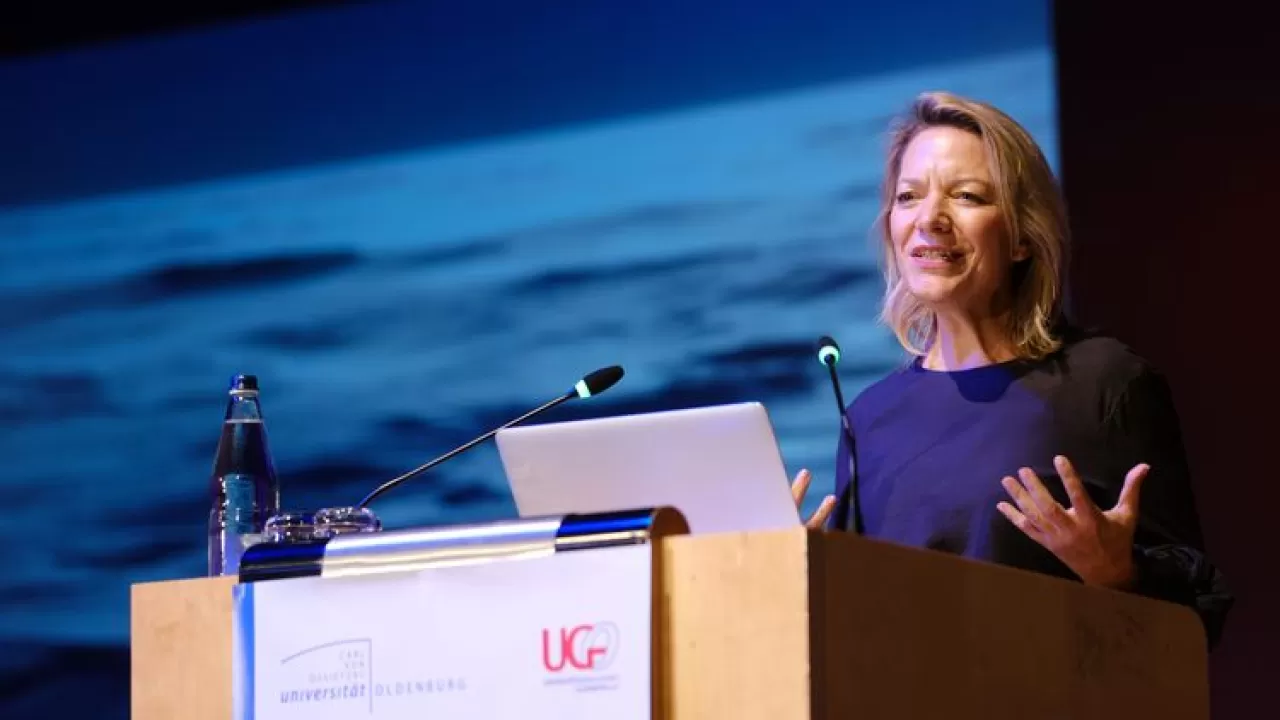#7 Antje Boetius

In her address to kick off the 2019/20 academic year at the University of Oldenburg, internationally renowned marine biologist Antje Boetius calls for committed, responsible research in the natural sciences. Her lecture, entitled “Expeditions to the ends of the world – A new departure in scientific research”, explores the main aims of modern marine biology.
Starting with a quotation from the young Alexander von Humboldt, who called botany a key science of the future, Boetius outlines the missions of marine and climate research. A million species – an eighth of all species on Earth – are at risk of extinction as a result of climate change and the way it is altering natural habitats. The threat stems primarily from the unceasing rise in CO2 emissions, which continues to fuel global warming. The oceans absorb 30 percent of these emissions but that is the limit of their capacity. One major effect of global warming is that the polar ice caps are melting.
As Director of the Alfred Wegener Institute for Polar and Marine Research, a post that she will relinquish in spring 2025 in order to head up a major marine research institute in California, on the Pacific coast, Boetius has been responsible for numerous polar sea expeditions. In her speech, she describes in graphic terms how global warming is making such research expeditions increasingly difficult. To build a polar measuring station that records the incidence of algae in the Arctic, for instance, you need stable ice, and in many parts of the Arctic, there is hardly any stable ice left. In some places, the ice has already disappeared entirely; in others, the structure of the ice has altered, which means it can now be displaced more easily by the surrounding water. For the animals of the Arctic, the shrinking ice poses drastic problems in terms of finding enough to eat. Antje Boetius points out that every ten years the polar ice shrinks by 13 percent. You don’t need to be a mathematician to work out that by the end of the century there will be no ice left – unless we can bring about a considerable improvement in climate values through alternative energy sources and a shift in how we think about food and travel.
The semester that started with this university address by Antje Boetius ended with the outbreak of the Covid pandemic. It would be two years before normal university life could resume. That is another example of the vagaries of nature that Antje Boetius mentions in her speech. It is precisely because we cannot predict impending crises and catastrophes with certainty that we desperately need committed scientific research that confronts us with the finite nature of our resources and the necessities that should encourage us to adopt new paradigms.
Peter-André Alt
Date October 22, 2019
Language German
Length 35 mins
Title, series Expeditionen ans Ende der Welt - Aufbruch in der Wissenschaft, Feierliche Eröffnung des akademischen Jahres 2019/20
Video Carl von Ossietzky Universität Oldenburg